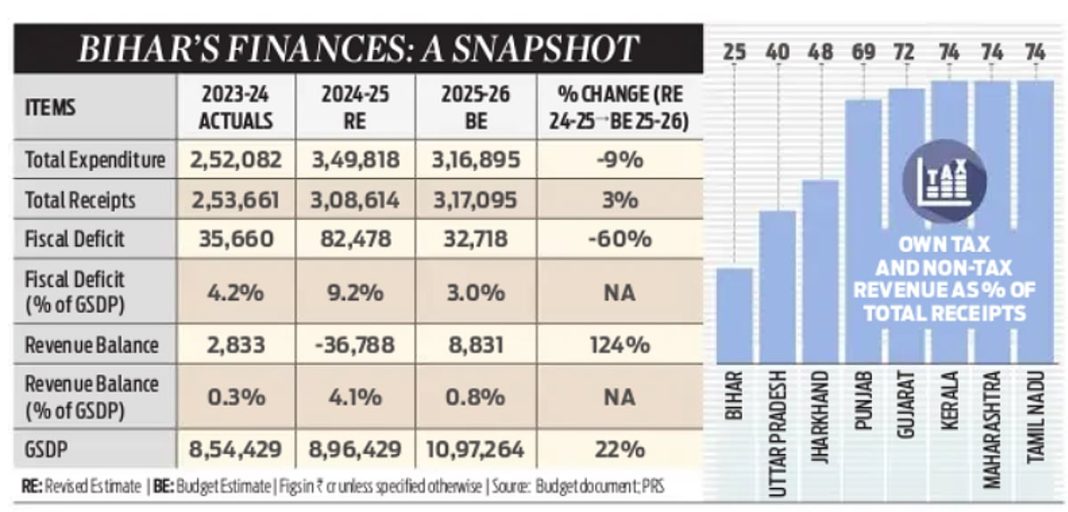Key Takeaways
- NDA’s Bihar election victory was significantly influenced by populist schemes including a Rs 10,000 women’s cash grant
- Economists warn freebies could cost over ₹40,000 crore annually, exceeding the state’s capital expenditure
- Bihar’s fiscal deficit has ballooned to 9.2% of GSDP, far above the 3% budget target
- State relies on central transfers for over 70% of revenue, raising sustainability concerns
The NDA’s resounding victory in Bihar elections was powered substantially by the state’s expanding freebies economy, with unprecedented female voter turnout driven by direct cash transfers and populist spending.
Populist Measures and Electoral Impact
Beyond the Rs 10,000 women’s grant, the government announced free electricity, student stipends, and Rs 5,000 grants for construction workers ahead of polls. These measures have become central to electoral strategy but carry significant fiscal risks.
Mounting Fiscal Pressure
Bihar’s finances are already under severe strain. FY25 expenditure reached Rs 3.49 lakh crore against receipts of just Rs 2.45 lakh crore, pushing the fiscal deficit to 9.2% of GSDP – triple the budgeted target.
“The outlay on these schemes could be more than ₹40,000 crore in FY26 alone, or nearly 4% of Bihar’s GSDP. For context, this would be more than the state’s budgeted capex outlay for FY26,” said Madhavi Arora, Chief Economist at Emkay Global.
Weak Revenue Base
Bihar’s own tax and non-tax revenue accounts for only 25% of total receipts, compared to 40% in Uttar Pradesh and 74% in Kerala. GST rationalisation and alcohol prohibition have further constrained revenue collection.
Long-Term Development Concerns
Economists warn that debt-financing may be the only way to deliver on promises, potentially undermining infrastructure development.
“Bihar is running short of money and does not have enough resources. During his earlier three terms, the Nitish Kumar government primarily depended on one-time grants from the Centre for infrastructure development. So, if you try to give so much money to women in the form of monthly stipends or Jeevika Didis, it is ultimately going to impact development and infrastructure projects,” said Bipul Kumar, political analyst at A N Sinha Institute of Social Studies.
Sustainability Challenges
With central transfers accounting for over 70% of revenue, the state’s ability to sustain these schemes remains questionable without robust private investment and fiscal reforms.
Manoranjan Sharma, Chief Economist at Infomerics Ratings, noted: “Delivering at this scale will depend on large central inflows, robust private investment, innovative financing models, and prudent fiscal management—particularly since the scale of commitments far exceeds Bihar’s present fiscal capacity.”




